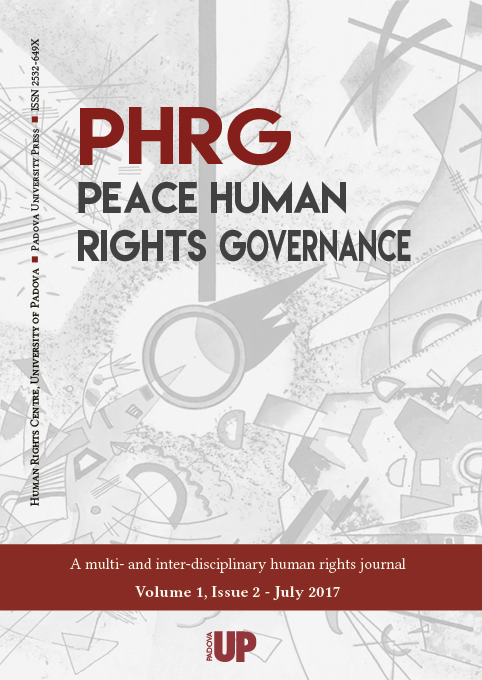Raccolte

Using social media in natural disaster management: a human-rights based approach
- Sito internet
- Peace Human Rights Governance 1(2)
- Tipologia pubblicazione
- Articolo / Saggio
- Pagine
- 195-221
- Lingua
- EN
Disaster response authorities in many states have been increasingly using social media data for emergency management. In so doing, it is crucial to consider the ethical and factual provenance of data being processed. This article explores the legal scenario that a software harvesting social media to extract data in disaster management decision support may face. Three legal components are considered: human rights law; international humanitarian law; and the international law on disasters. It is argued that a coherent way of ethically and pragmatically handling this complex regulatory set is by adopting a human rights-based stance. This is also recommended to contrast a shared vision that highlights disproportionately the technological and ‘digital’ dimensions of the humanitarian action. It is argued that for a software device whose purpose is to surf the Internet and grab information to better manage disaster relief operations, key components are context-sensitive design, interoperability, transparency and people-centeredness.

